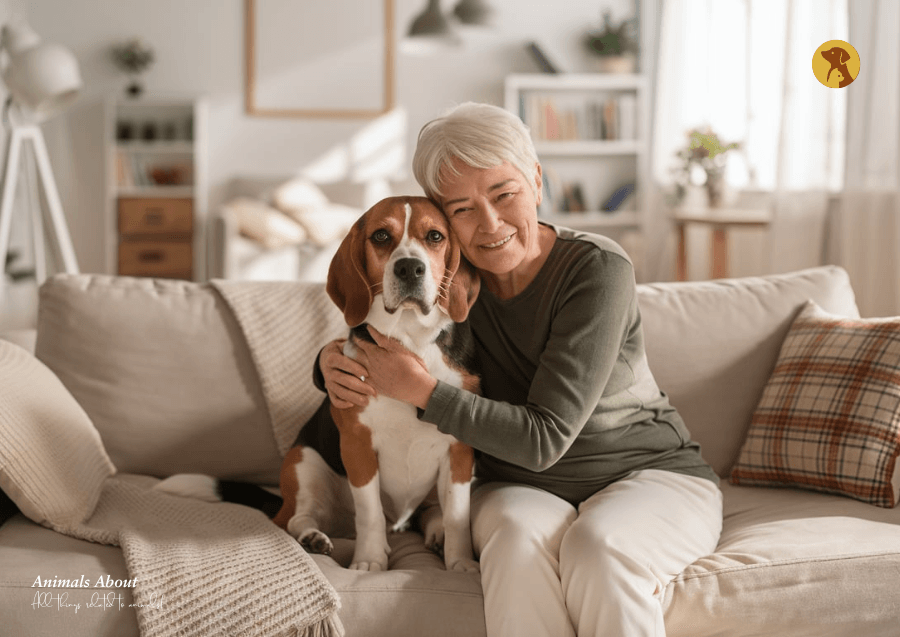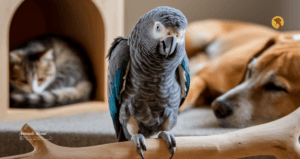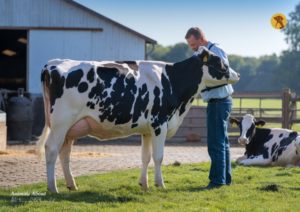As our furry companions enter their golden years, their needs shift, but their love remains unwavering. Caring for an aging pet can feel overwhelming, but with practical senior pet care tips, you can ensure they live a comfortable, joyful life at home. Whether you have an aging dog or an older cat, these senior pet care tips will help you support their health, mobility, and happiness. Let’s dive into creating a loving environment with elderly pet care that’s simple, heartfelt, and optimized for senior pet wellness.
Recognizing Pet Aging Signs : Early Senior Pet Care Tips
Effective senior pet care tips start with understanding the signs of aging. Most pets become seniors around 7–10 years old, though this varies by breed and size. Smaller dogs may age more slowly, while larger breeds show pet aging signs earlier. Look for symptoms like:
- Slower movements or difficulty jumping or climbing stairs
- Changes in appetite, such as eating less or gaining weight
- Cloudy eyes, hearing loss, or reduced alertness
- Increased sleeping or less interest in play
- Senior pet behavior changes, like confusion, anxiety, or irritability
These signs are normal for aging dog health or older cat care, but they signal it’s time to adapt your approach. A vet checkup for older pets can confirm your pet’s needs and guide you toward the best senior pet care tips for their health.
Crafting a Senior Pet Wellness Routine
A consistent senior pet wellness routine is key to applying senior pet care tips effectively. This routine should blend nutrition, exercise, grooming, and emotional care to meet your pet’s evolving needs. Here’s a daily plan for home care for senior pets:
- Morning: Serve a nutrient-rich breakfast tailored to senior dog nutrition or cat needs, followed by a short, gentle walk or play session to keep joints mobile.
- Daytime: Ensure access to fresh water, cozy resting spots, and easy-to-reach resources like food bowls or litter boxes.
- Evening: Engage in gentle exercise for senior pets, such as a slow stroll or light stretching, followed by bonding time like petting or brushing.
- Weekly: Check for new pet aging signs, such as lumps, skin changes, or behavioral shifts. Regular grooming, including nail trims and coat brushing, keeps them comfortable.
This routine, built on senior pet care tips, provides structure and comfort. Adjust it based on your pet’s unique needs, and consult your vet for personalized advice.
Nutrition for Senior Pets
Nutrition is a cornerstone of senior pet care tips for senior dog nutrition and older cat care. As pets age, their metabolism slows, requiring fewer calories but more targeted nutrients. Here’s how to optimize their diet:
- Choose senior-specific food: Select high-quality pet food designed for aging dog health or older cat care guide standards. These often include joint-supporting ingredients like glucosamine or fiber for digestion.
- Add supplements: Consult your vet about supplements for older pets, such as omega-3s for skin and coat health, probiotics for digestion, or antioxidants for immunity.
- Control portions: Obesity can worsen pet arthritis and mobility issues, so measure food to maintain a healthy weight. For underweight pets, calorie-dense options may be recommended.
- Boost hydration: Older pets may drink more due to kidney or urinary changes. Keep fresh water accessible, and consider wet food for cats to increase moisture intake.
For picky eaters, warm food slightly or add vet-approved toppers to make meals appealing. Regular vet checkups for older pets ensure their diet aligns with senior pet care tips.
Managing Pet Arthritis and Mobility
Pet arthritis is a common challenge for senior pets, causing stiffness and discomfort. Incorporating senior pet care tips for mobility can make a big difference. Here’s how to provide mobility support for pets:
- Offer comfortable bedding: Orthopedic beds with memory foam ease joint pain. Choose comfortable bedding for pets that’s easy to clean and fits their favorite spots.
- Use ramps or steps: If your pet struggles to climb onto furniture or into the car, pet-safe ramps or stairs improve access. Place them near cozy spots for convenience.
- Encourage gentle exercise: Low-impact activities like short walks or swimming (for dogs) keep joints mobile without strain. Gentle exercise for senior pets should match their energy and condition.
- Explore pain management: If your pet shows signs of discomfort, such as limping or reluctance to move, ask your vet about pet pain management options, like medications or acupuncture.
Monitor your pet’s weight, as excess pounds worsen arthritis. A warm, draft-free environment also supports joint comfort, aligning with senior pet care tips.
Adapting Your Home: Senior Pet Safety and Comfort Tips
Adapting your home for senior pets is a practical way to apply senior pet care tips. Small changes enhance safety and comfort for in-home care for aging pets:
- Add non-slip surfaces: Place rugs or mats on slippery floors to prevent falls, especially for pets with pet arthritis or balance issues.
- Make resources accessible: Position food, water, and litter boxes in easy-to-reach areas, avoiding stairs for essentials.
- Create quiet retreats: Senior pets may be sensitive to noise or activity. Set up cozy, low-traffic areas for undisturbed rest, especially if they show senior pet behavior changes.
- Improve lighting: Dim lighting can challenge pets with vision loss. Add nightlights or keep rooms well-lit for confident navigation.
These adjustments create a supportive environment, reflecting senior pet care tips for a happy home.
Dental Care for Senior Pets
Dental care for senior dogs and cats is critical yet often overlooked. Poor dental health can cause pain, infections, and systemic issues. Use these senior pet care tips to keep their teeth healthy:
- Brush regularly: Use pet-safe toothpaste and a soft toothbrush a few times a week. Start slowly, rewarding your pet with treats for cooperation.
- Provide dental chews: Vet-approved chews or toys reduce plaque, especially for dogs.
- Schedule professional cleanings: Ask your vet about dental cleanings, which may require anesthesia but address serious issues like tartar or gum disease.
Request a dental exam during vet checkups for older pets to catch problems early. A healthy mouth supports their ability to eat and maintain aging dog health or cat wellness.
Emotional Support for Older Pets
Senior pets thrive on love and routine, and emotional support for older pets is a vital part of senior pet care tips. Here’s how to nurture their emotional well-being:
- Stick to a schedule: Consistent feeding, walking, and playtimes reduce stress, especially for pets with senior pet behavior changes.
- Spend quality time: Gentle petting, brushing, or sitting together strengthens your bond. These moments are precious for both of you.
- Watch for stress: If your pet seems clingy, disoriented, or withdrawn, offer extra comfort. Calming pheromone diffusers or familiar toys can help.
- Be patient: Aging pets may have accidents or act differently. Respond with kindness and consult your vet if changes seem sudden or severe.
Your presence is a powerful tool for keeping your pet happy, aligning with senior pet care tips.
The Role of Regular Vet Checkups
Vet checkups for older pets are essential for applying senior pet care tips effectively. Schedule visits every six months to monitor for conditions like:
- Kidney or liver disease
- Diabetes or thyroid issues
- Heart conditions
- Cancer or tumors
Your vet may recommend bloodwork, urinalysis, or imaging to track your pet’s health. These visits also allow discussions about supplements for older pets, pain management, or dietary changes. Proactive care ensures your pet enjoys a high quality of life.
Final Thoughts on Senior Pet Care
Caring for a senior pet is a beautiful way to honor the love and joy they’ve brought into your life. By embracing these senior pet care tips, you can help your aging dog or cat thrive at home. From senior dog nutrition and managing pet arthritis to adapting your home for senior pets and offering emotional support for older pets, every action counts. Stay diligent with vet checkups for older pets, prioritize dental care for senior dogs, and maintain a consistent senior pet wellness routine.
For more ways to keep your pet happy, explore additional resources on Animals About. Let’s make every moment with our senior pets shine!







